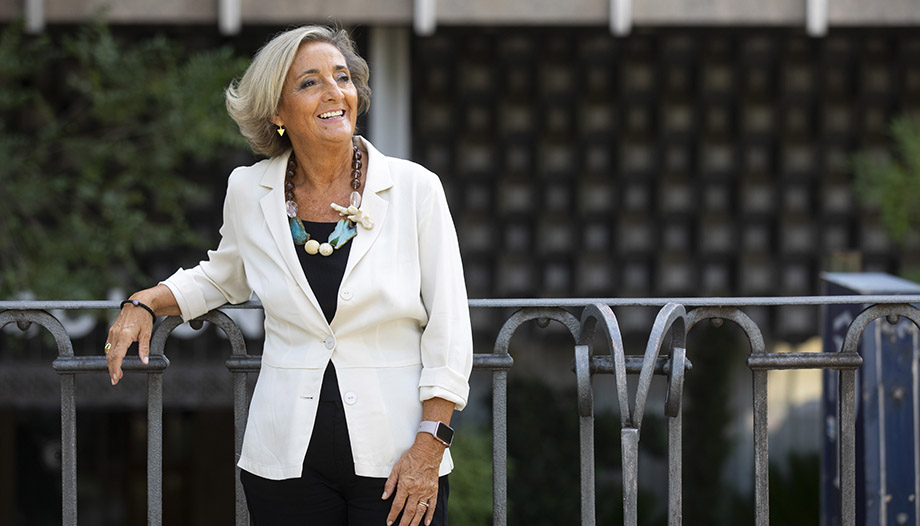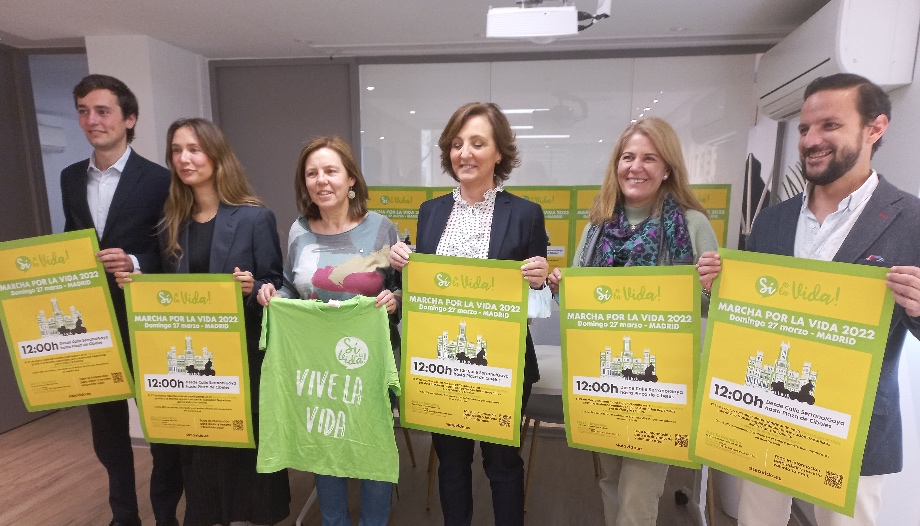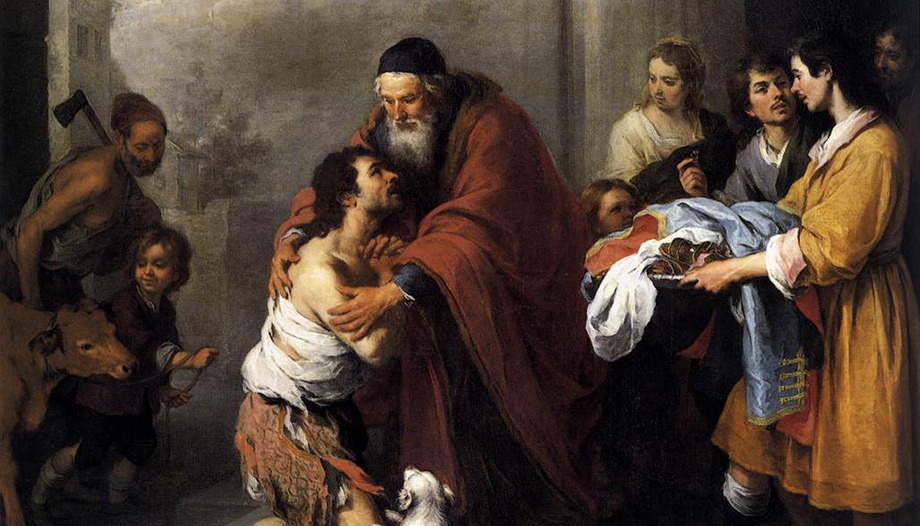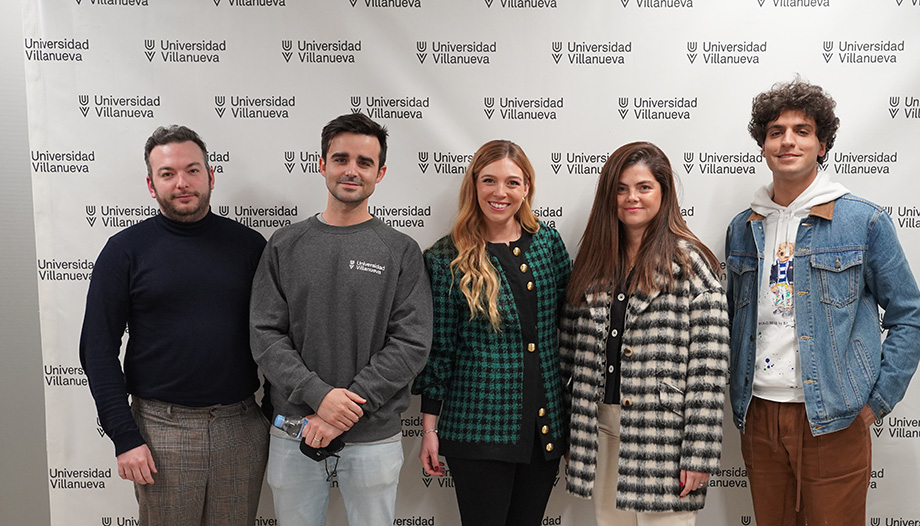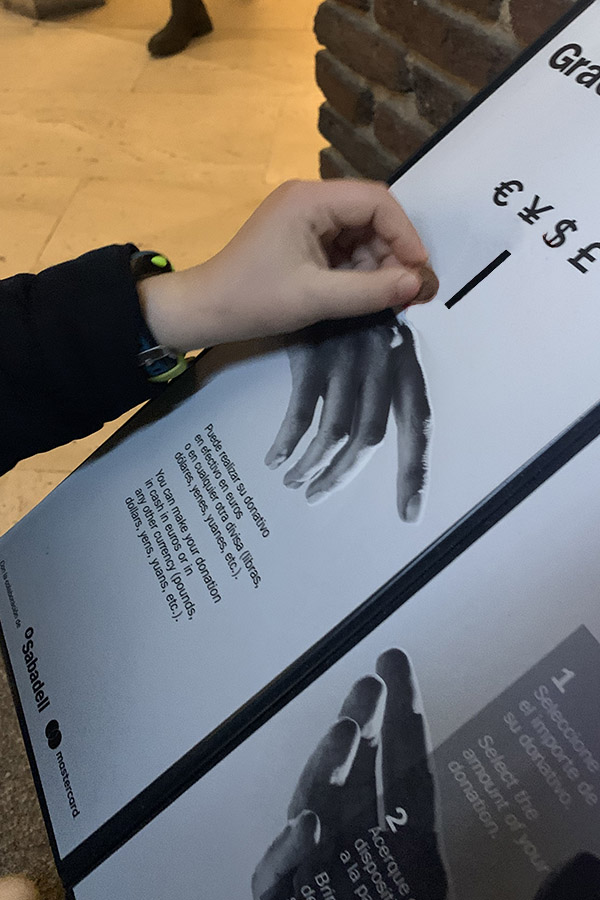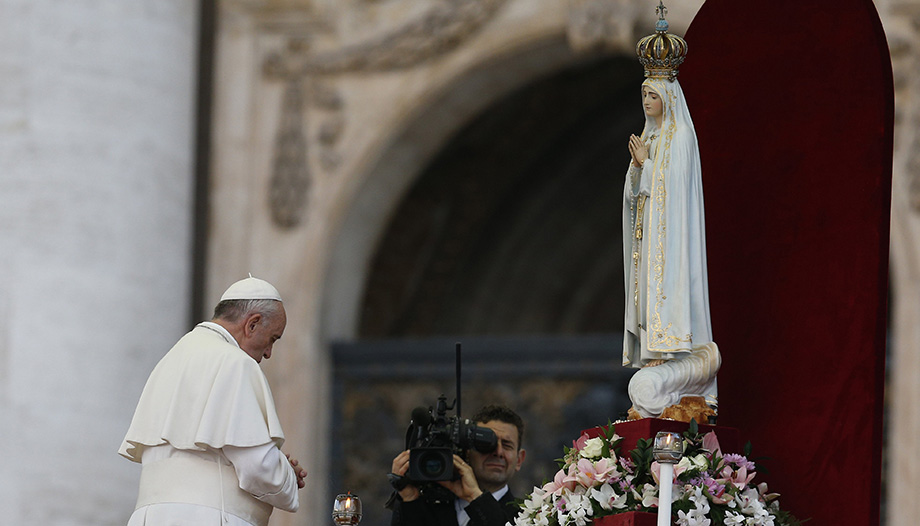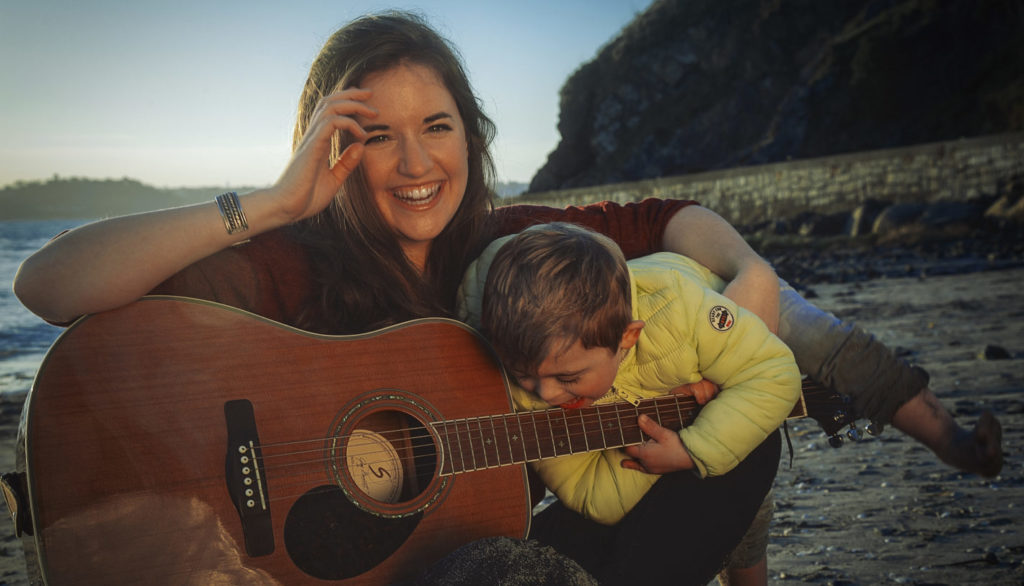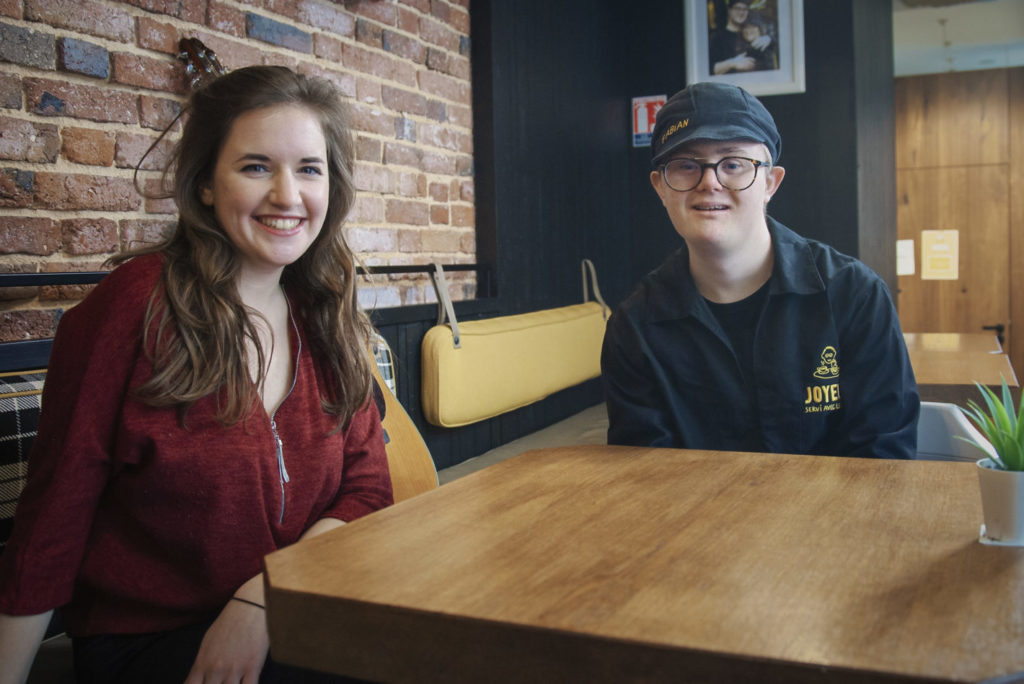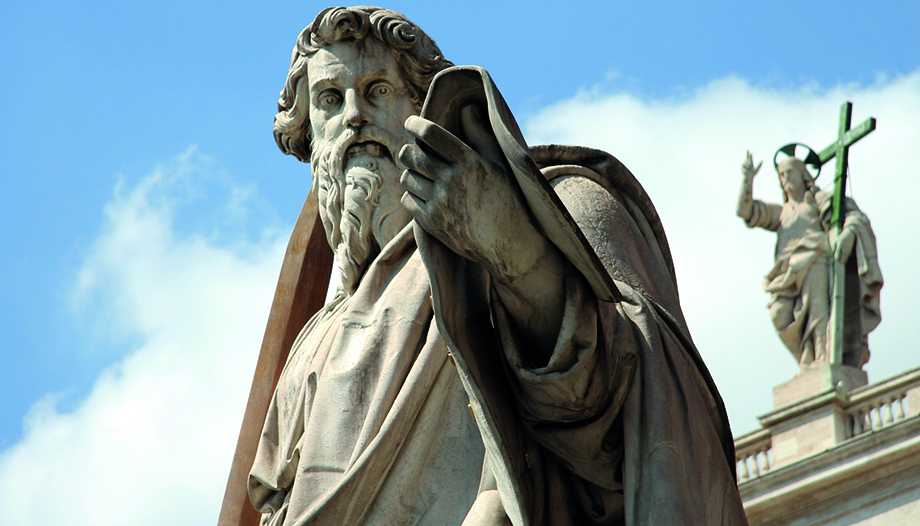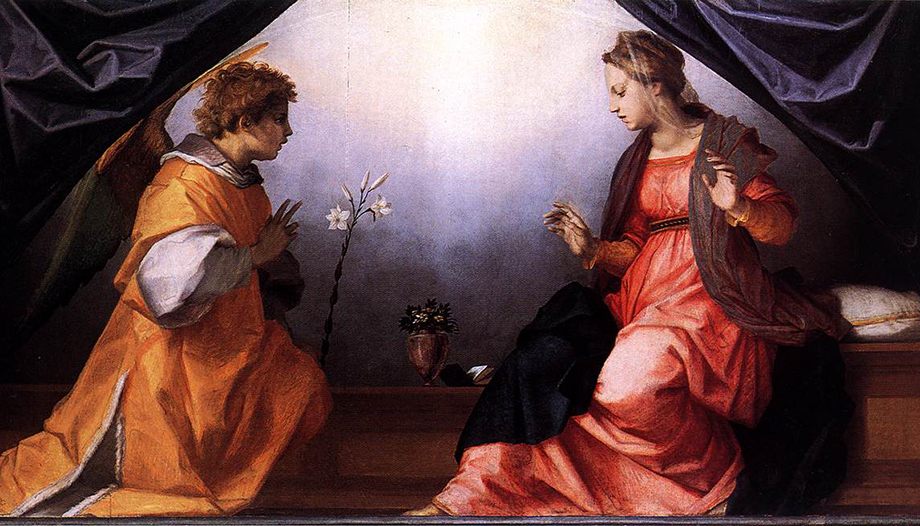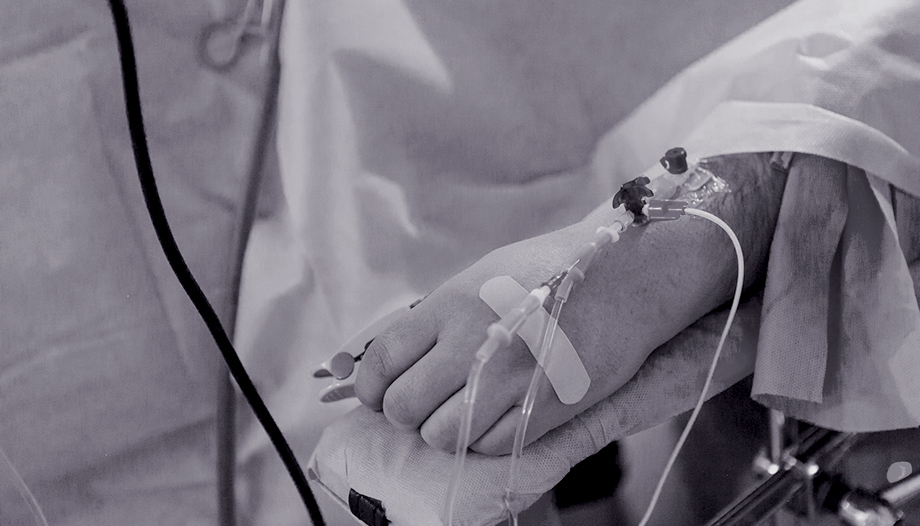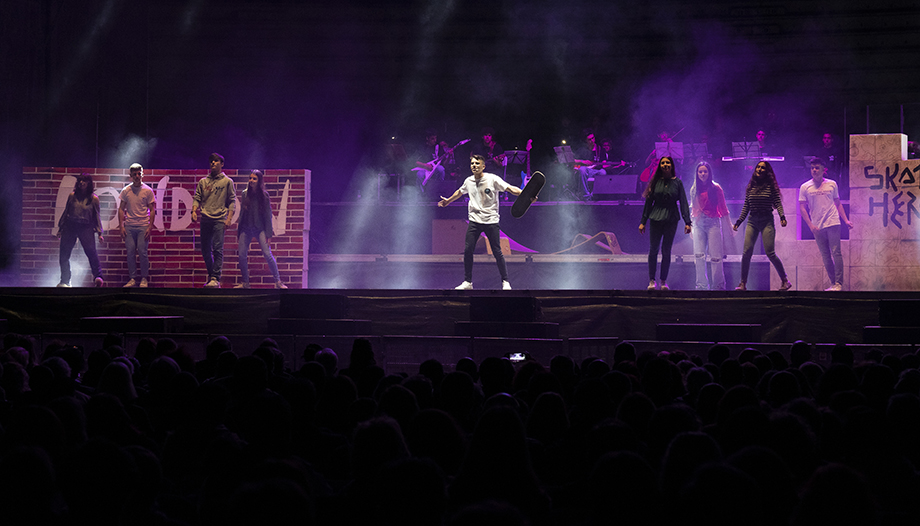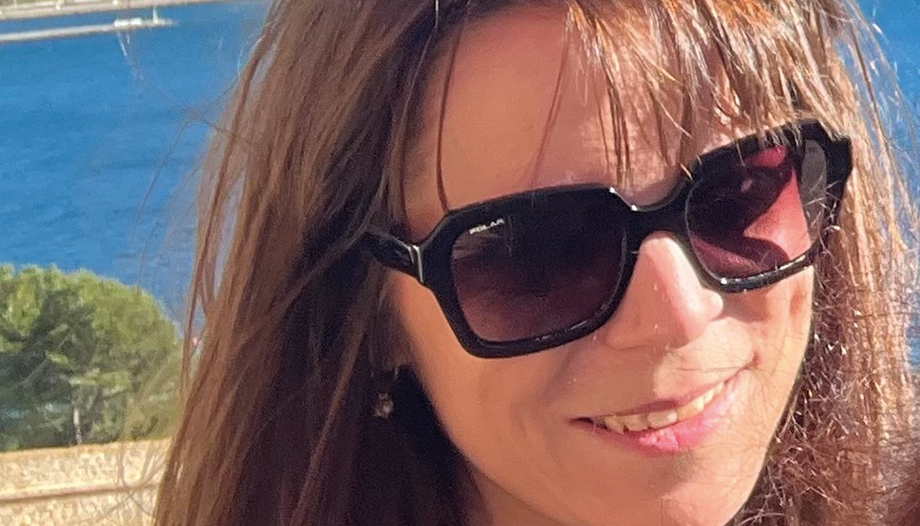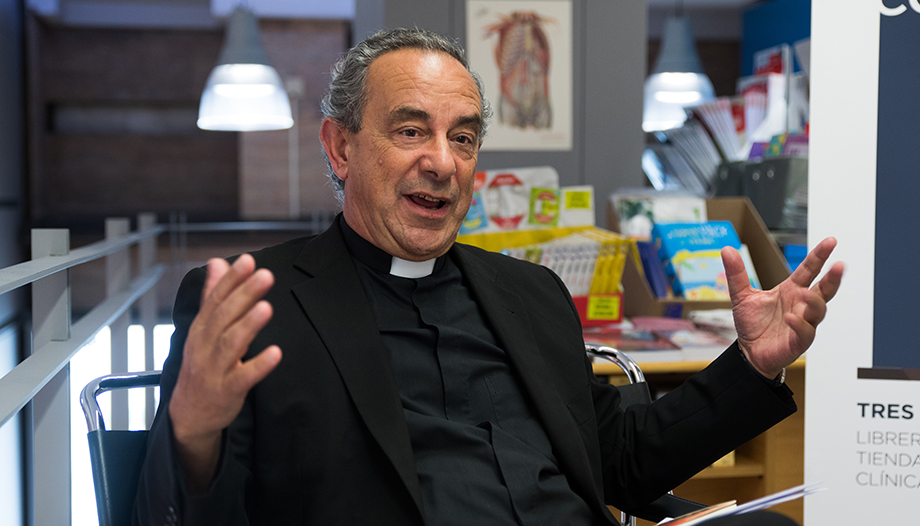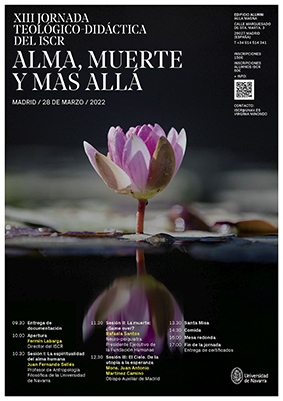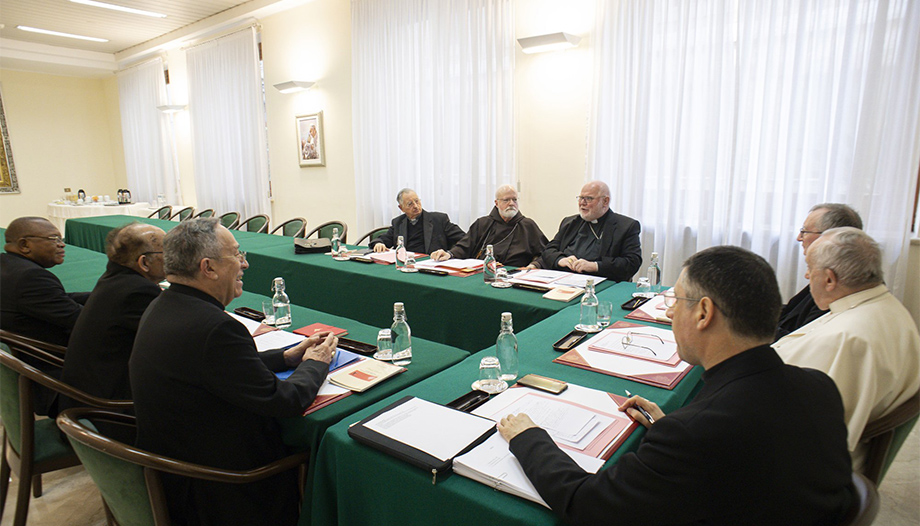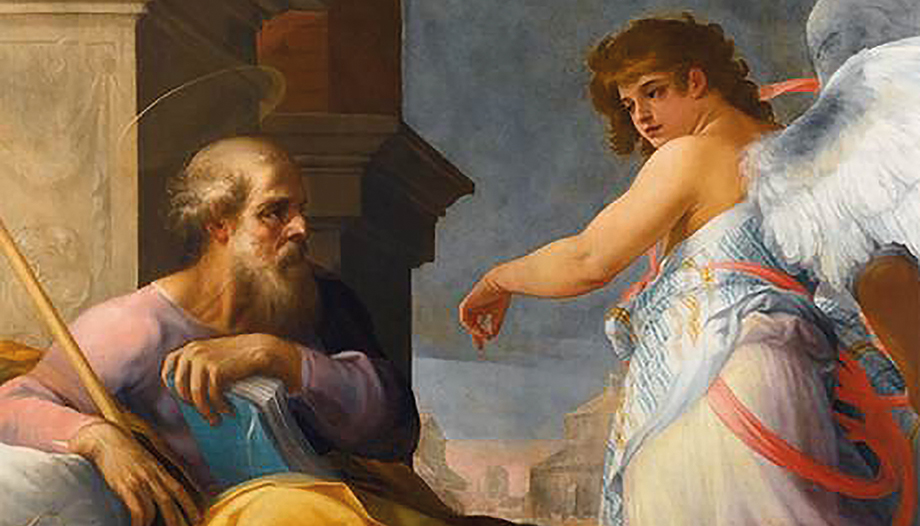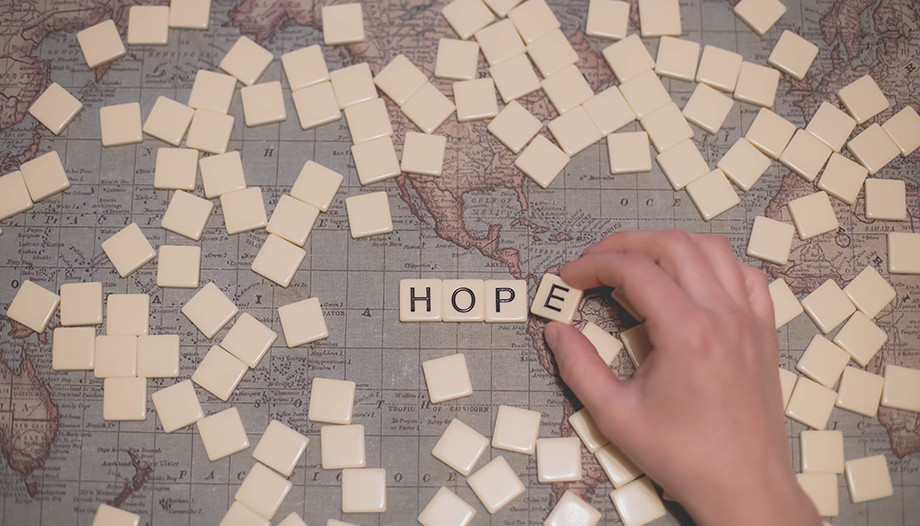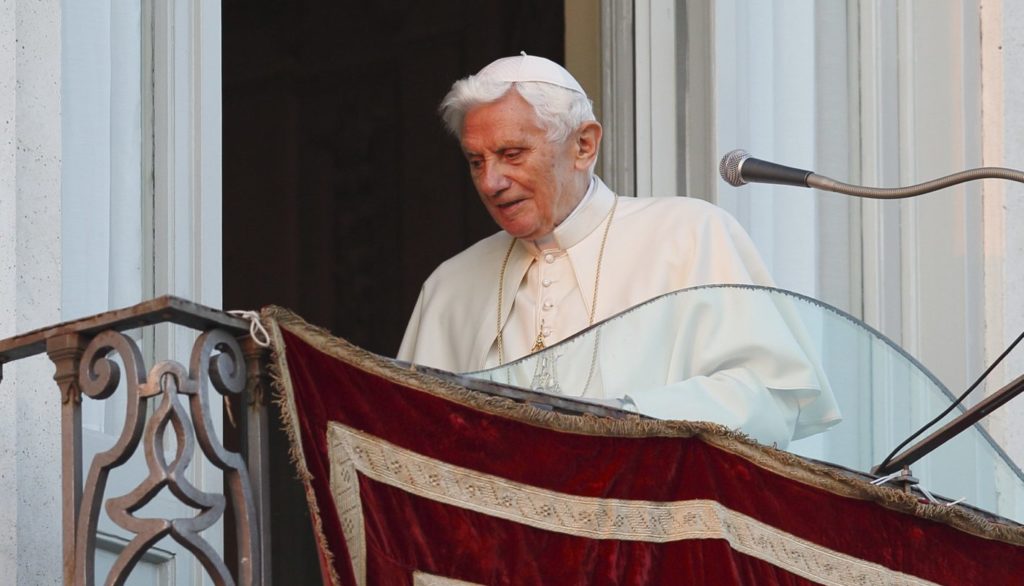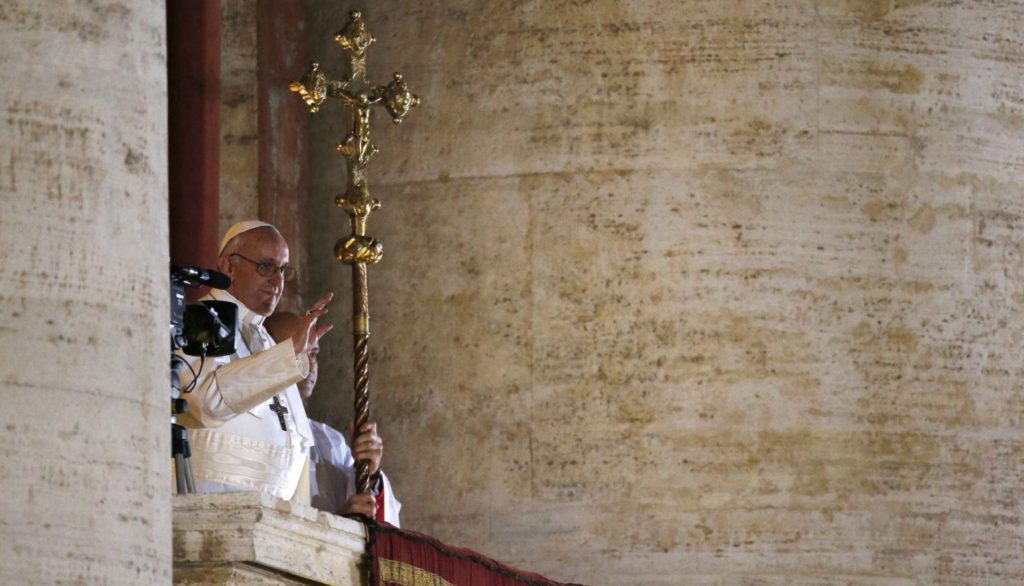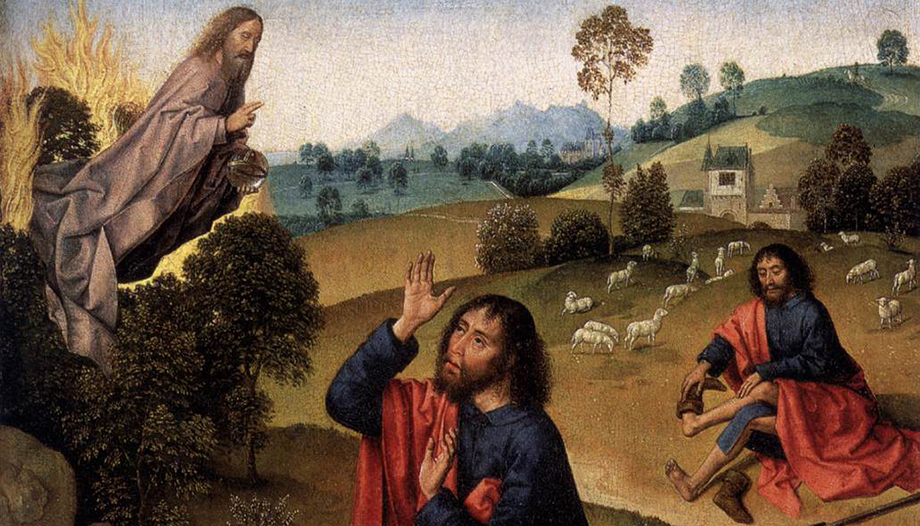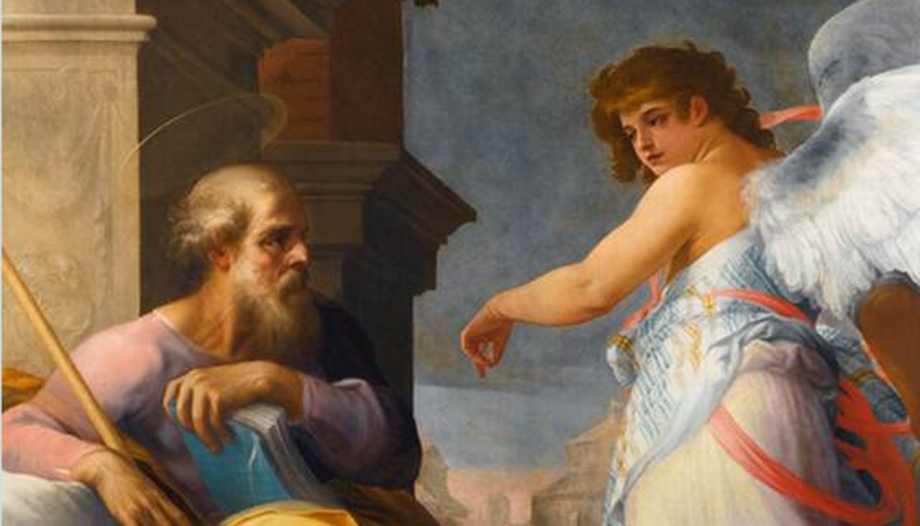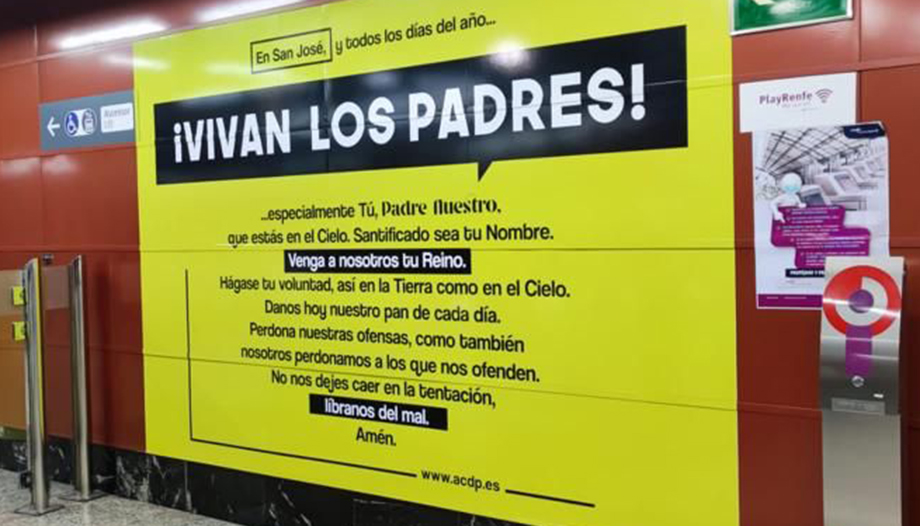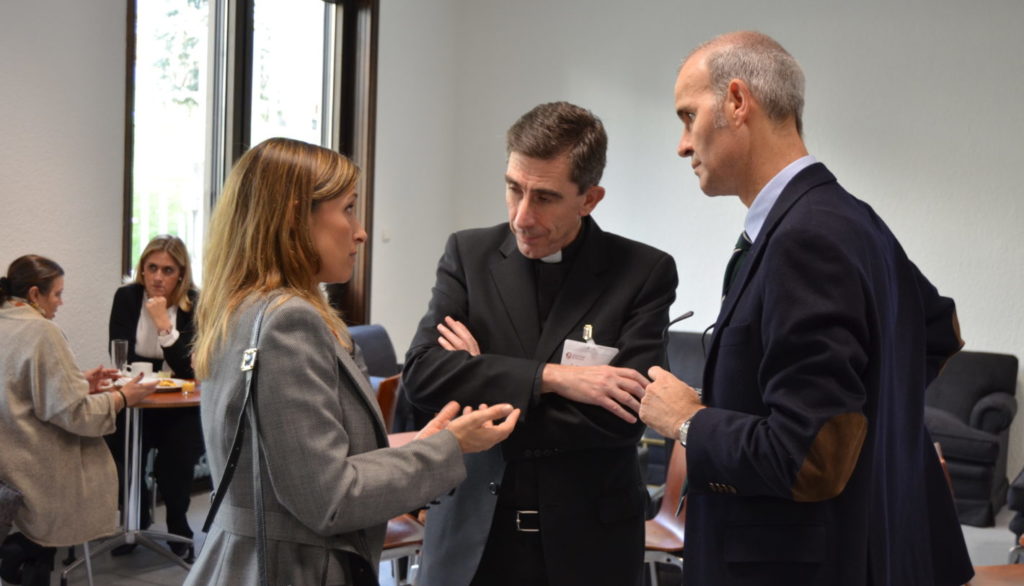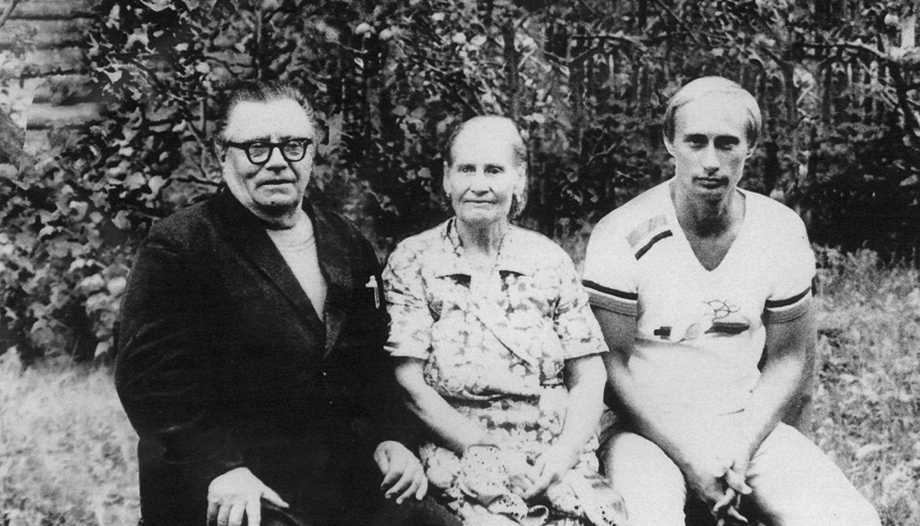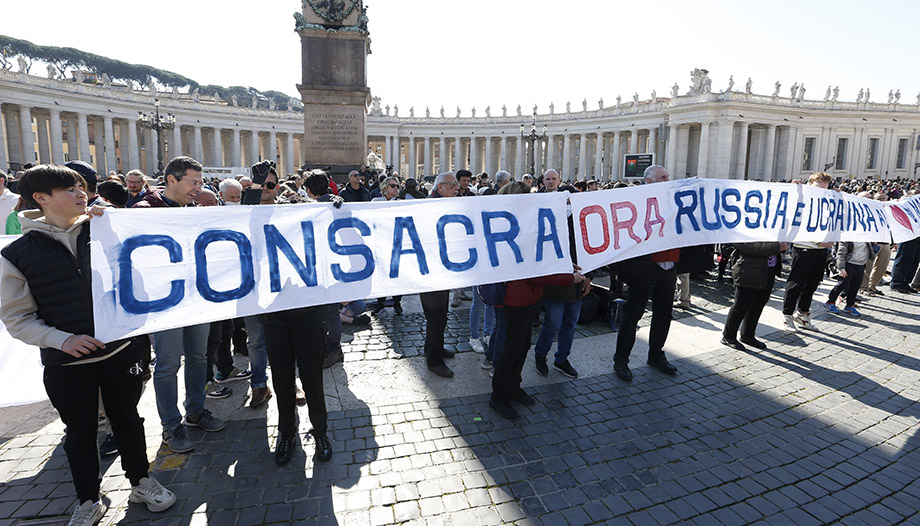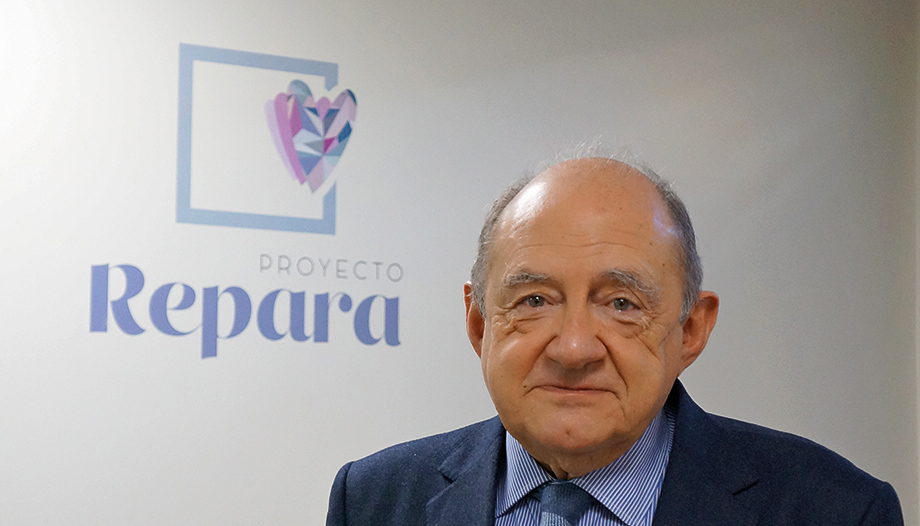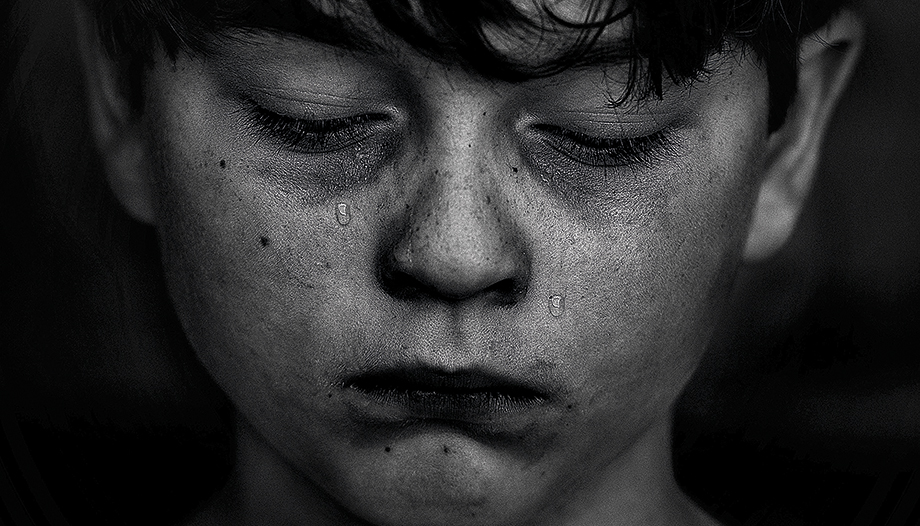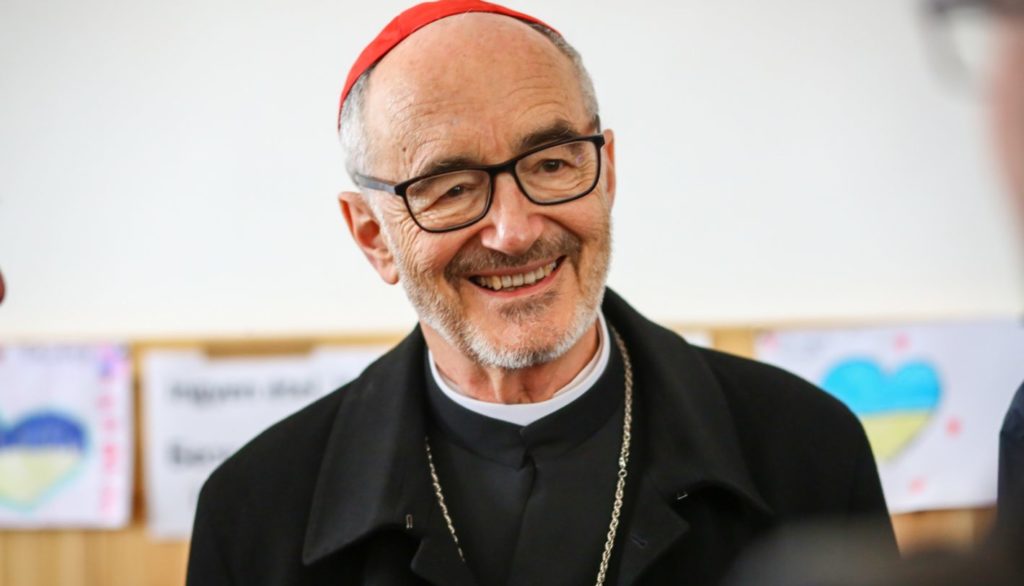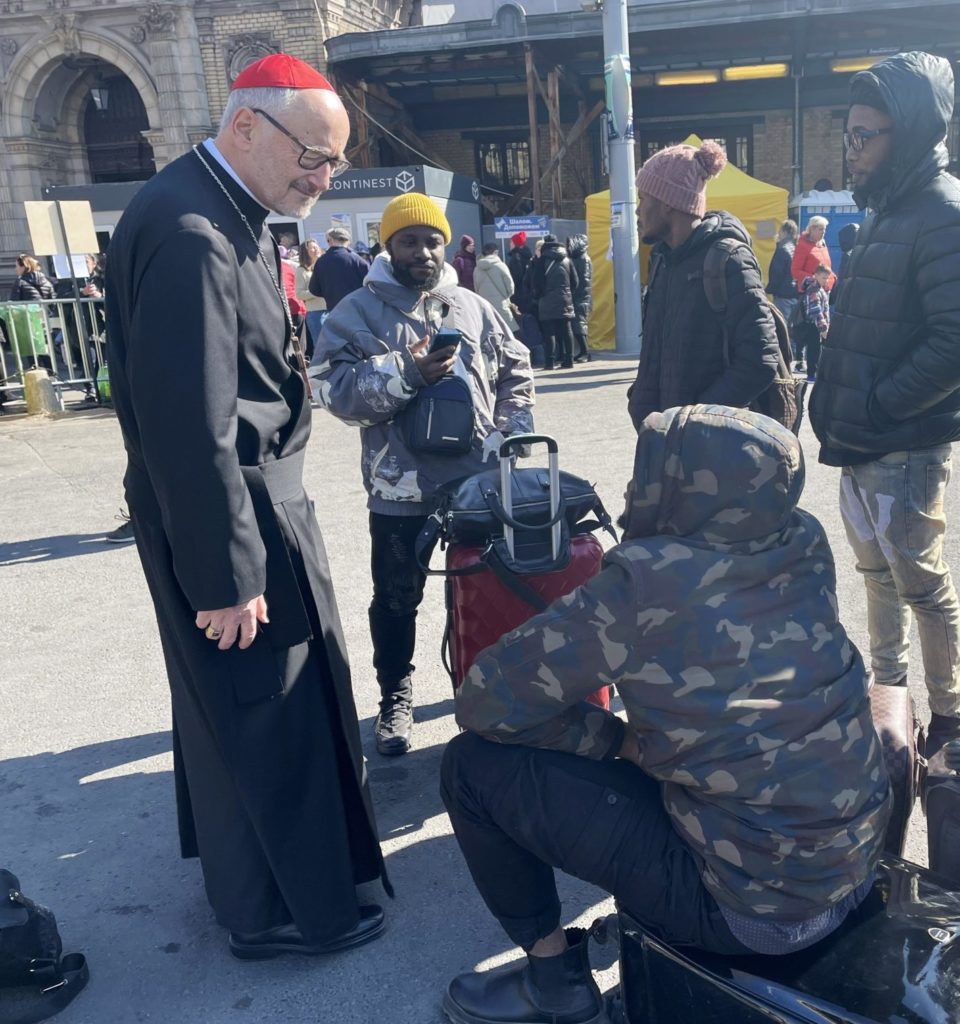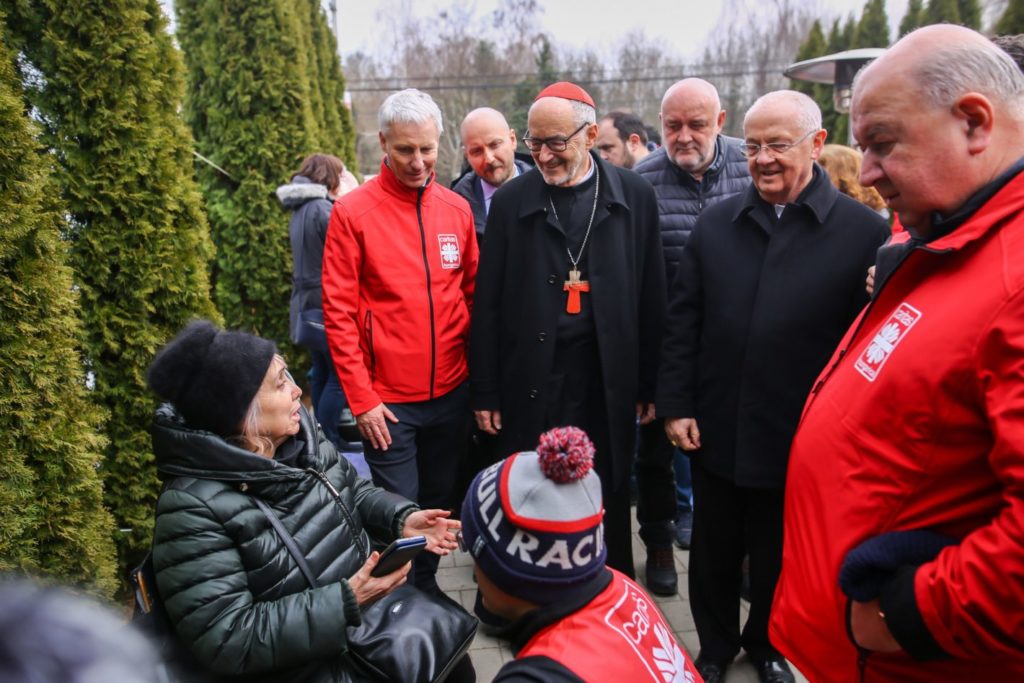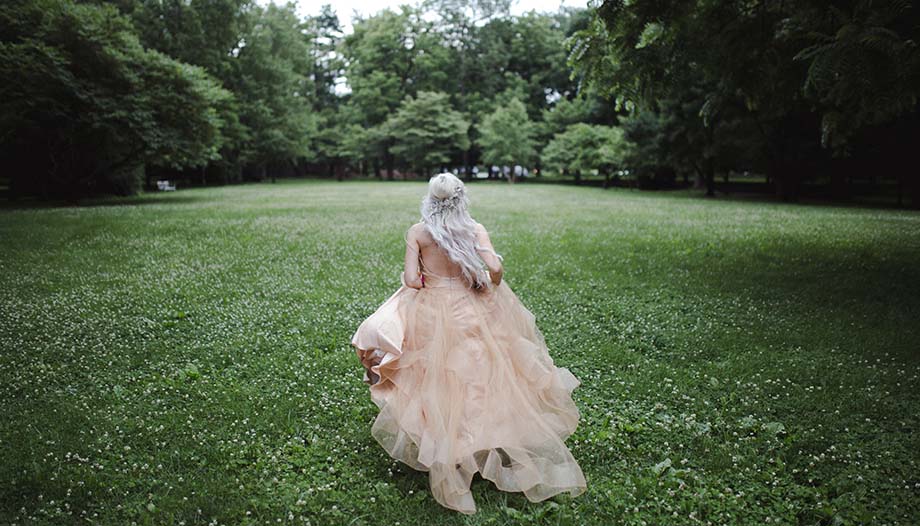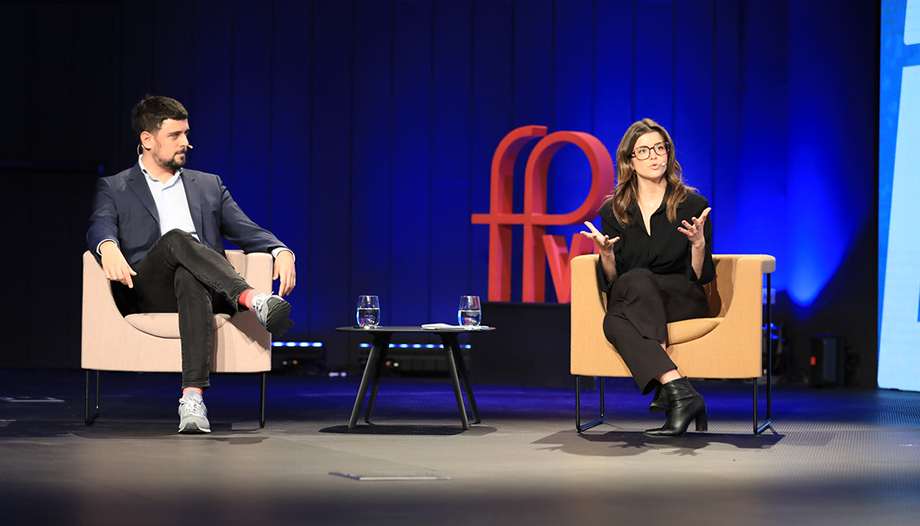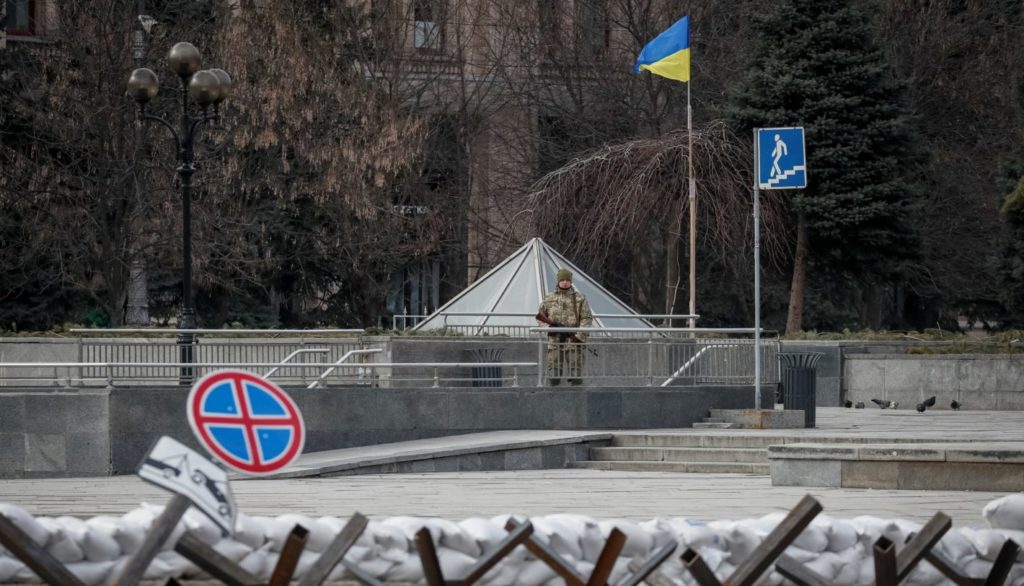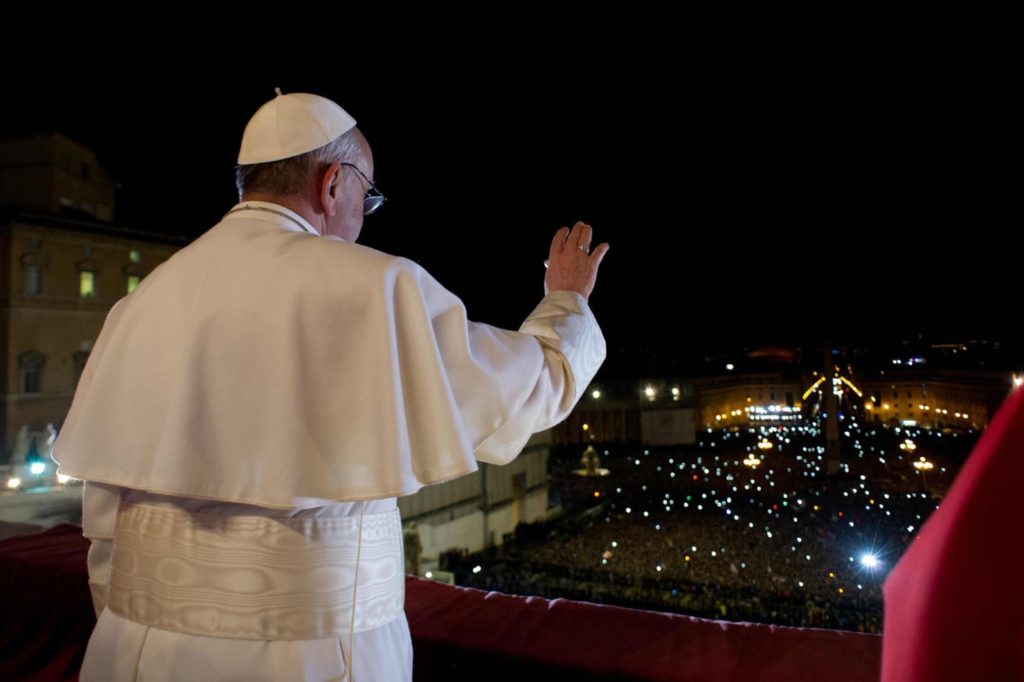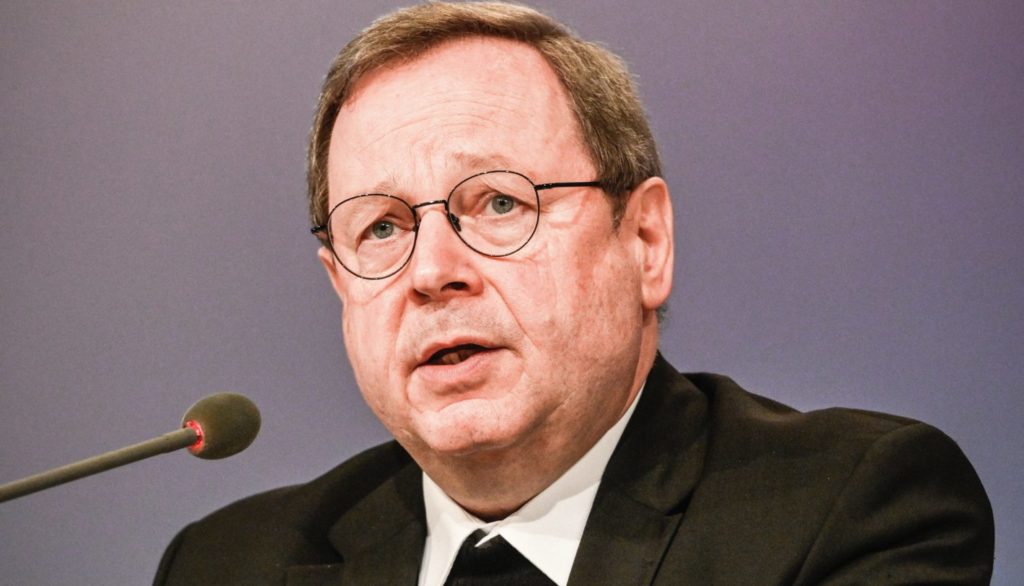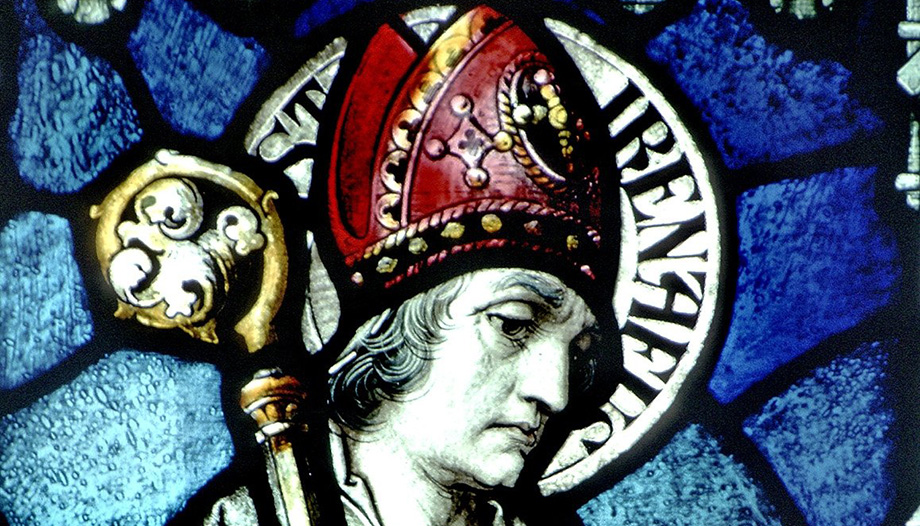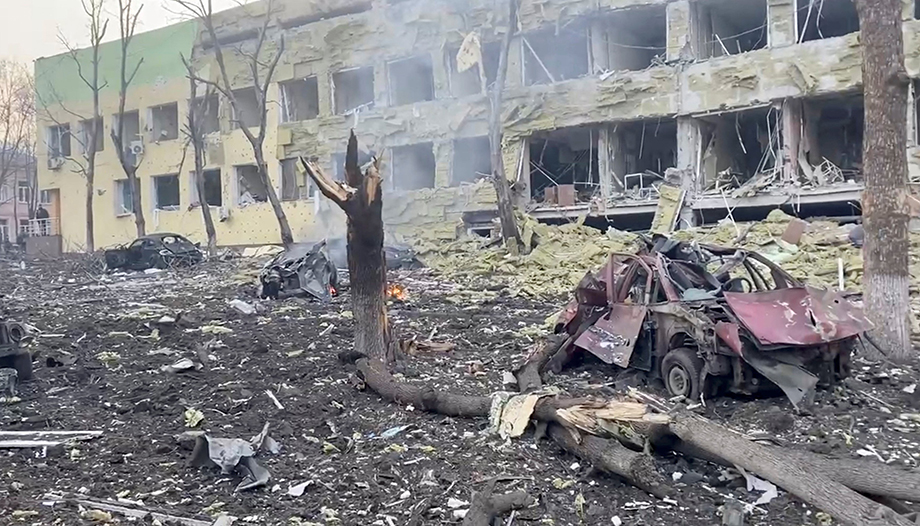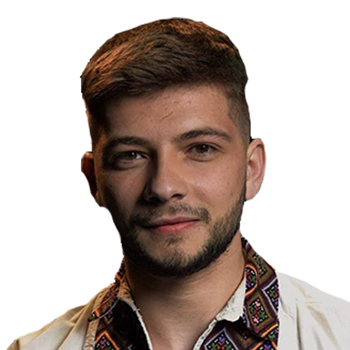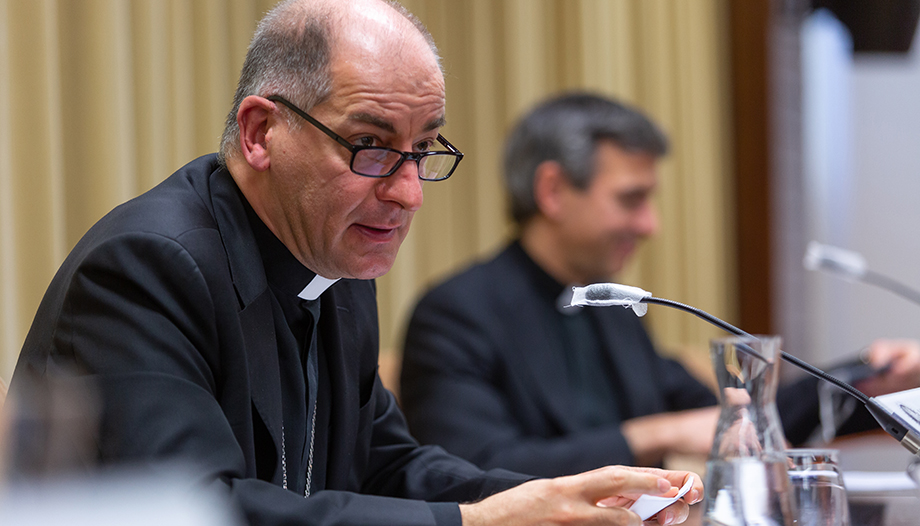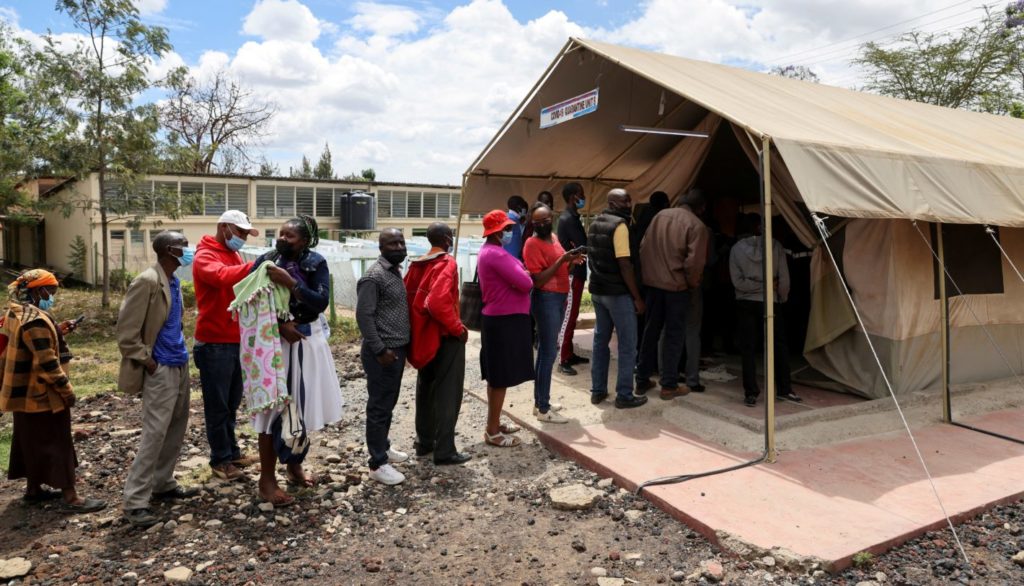This note responds, as the bishops themselves explain "to the process of approval of laws in which human life is gravely unprotected" together with the growing difficulty for the exercise of "conscientious objection of those who are opposed to collaborate in these practices".
The Conference itself points out that it is a doctrinal note "because it is based on principles of fundamental morality, such as the dignity of conscience, and of the Social Doctrine of the Church, such as religious freedom and freedom of conscience, the mission of the State, the nature of human rights, etc. The text offers Catholics the right and the duty they have to actively oppose actions that go against the demands of the Christian faith or its fundamental values".
"When public authorities set themselves up as disseminators of an ideology, they go beyond the limits of their mission."
The bishops also point out that "when the public authorities set themselves up as disseminators of a certain ideology or promoters of certain moral values that are open to opinion, they are overstepping the limits of their mission". In the prelude to the note, it is also recalled that the obligation of the State is "to recognize this right and not to discriminate against those who exercise it is parallel to the
obligation of Christians to avoid any type of direct material or formal cooperation
with those acts that attempt against the right to life, and any action that may be
interpreted as cooperation, even if indirect, or approval of these acts". In fact, they point out that conscientious objection is intended for laws that "attack essential elements of religion itself or those that undermine the foundations of human dignity and coexistence based on justice".
This note was approved by the member bishops of the Episcopal Commission for the Doctrine of the Faith at its CCLVI meeting on February 1, 2022 and the Standing Commission of the EEC authorized its publication at its CCLVIII meeting on March 8-9, 2022.
Doctrinal note on conscientious objection "Christ has set us free for freedom" (Gal 5:1).
I. JUSTIFICATION FOR THIS NOTE
Human beings are characterized by an awareness of their own dignity and of the fact that the safeguarding of this dignity is linked to respect for their freedom. The conviction that the two are inseparable and that all human beings, regardless of their economic or social situation, have the same dignity and, therefore, the right to live in freedom, constitutes one of the most important advances in the history of humanity: "Never have men had such a keen sense of freedom as today". The aspiration to live in freedom is inscribed in the heart of man.
Freedom cannot be separated from other human rights, which are universal and inviolable. Therefore, they must be protected as a whole, to the point that "partial protection of them would be tantamount to their non-recognition". Their root "must be sought in the dignity that belongs to every human being", and their ultimate source "is not to be found in the mere will of human beings, in the reality of the State or in the public authorities, but in man himself and in God his Creator". In the documents of the Church's Magisterium we find enumerations of these rights. The first of all is the right to life from conception to its natural conclusion, which "conditions the exercise of every other right and entails, in particular, the unlawfulness of every form of induced abortion and of euthanasia". The right to religious freedom is also fundamental, for it is "an emblematic sign of the authentic progress of man in every regime, in every society, system or environment".
In the process that led to the formulation and proclamation of human rights, these were conceived as the expression of ethical limits that the State could not overstep in its relations with individuals. They were a defense against totalitarian temptations and the tendency of the public authorities to invade people's lives in all spheres, or to dispose of them according to their own interests. For this reason, the Church values them as an "extraordinary opportunity that our times offer so that, through their consolidation, human dignity may be more effectively recognized and universally promoted". In Catholic doctrine, moreover, they are seen as an expression of the basic moral norms that must be respected in every occasion and circumstance, and of the path to a more dignified life and a more just society.
In recent decades, a new vision of human rights has been gaining ground. We live in a cultural environment characterized by an individualism that does not want to accept any ethical limits. This has led to the recognition by public authorities of new "rights" which, in reality, are the manifestation of subjective desires. In this way, these desires become a source of law, even though their realization implies the denial of authentic basic rights of other human beings. This has had consequences in legislation: behaviors that were tolerated through "decriminalization" are now considered "rights" that must be protected and promoted.
We have recently witnessed in our country the approval of the law that allows the practice of euthanasia and considers it as a right of the person. It is one more step in a series of laws that lead to human life being gravely unprotected. Laws have also been passed that are inspired by anthropological principles that absolutize human will, or by ideologies that do not recognize the nature of the human being given to him at creation, which should be the source of all morality. These laws also promote the imposition of these principles in educational plans, and restrict the right to conscientious objection both of individuals and of educational, health or social welfare institutions, thus limiting the exercise of freedom.
This leads us to think that, although it is true that human beings have never had such a strong sense of their own freedom, this freedom will always be threatened by states and groups of power that do not hesitate to use any means to influence people's consciences, to spread certain ideologies or to defend their own interests. Today we have the feeling that certain human rights are being "tolerated" as if they were a "gracious" concession, that they are being progressively curtailed, and that values contrary to the religious convictions of large groups in society are being promoted. The use of power to shape the moral conscience of individuals constitutes a threat to freedom.
In continuity with the teachings of this EWC expressed in the pastoral instruction "The truth shall set you free" (Jn 8:32); and in accordance with the letter of the Congregation for the Doctrine of the Faith Samaritanus bonusThe document calls for "a clear and unified position on the part of the Episcopal Conferences, local churches and Catholic institutions to protect the right to conscientious objection in the legislative contexts that provide for the right to conscientious objection. euthanasia and suicide"; in the present note we wish to recall the moral principles that Catholics must keep in mind when deciding on how to act in the face of these and similar laws, and which any state or person committed to the defense of human rights should respect.
II. FREEDOM OF RELIGION AND CONSCIENCE
Freedom, which consists in "the power, rooted in reason and will, to act or not to act, to do this or that, to carry out deliberate actions of one's own accord," is an essential characteristic of the human being given by God at the moment of his creation. It is the "eminent sign of his divine image" and, therefore, the ultimate expression of the dignity that is proper to him. In creating the human being endowed with freedom, God wants him to seek it and adhere to it without coercion so that, in this way, "he may attain full and happy perfection". We are, therefore, before something of which no human power can licitly deprive us: "Every human person, created in the image of God, has the natural right to be recognized as free and responsible".
This essential characteristic of the human being is not to be understood as an absence of any moral law that indicates limits to his actions, or as "a license to do whatever pleases, even if it is evil". The human being has not given himself existence, so he exercises his freedom correctly when he recognizes his radical dependence on God, lives in permanent openness to him and seeks to fulfill his will. Moreover, he has been created as a member of the great human family, so that the exercise of his freedom is conditioned by the relationships that shape his existence: with other human beings, with nature and with himself. Freedom cannot be understood as a right to act independently of any moral requirement.
Respect for the freedom of all persons, which constitutes an obligation of the public authorities, is manifested, above all, in the defense of religious freedom and freedom of conscience: "The right to exercise freedom is an inseparable requirement of the dignity of the human person, especially in moral and religious matters". We live immersed in a culture that does not value religion as a positive factor for the development of individuals and societies. The principle that underlies many laws that are passed is that we should all live as if God does not exist. There is a tendency to undervalue religion, to reduce it to something merely private and to deny the public relevance of faith. This leads to considering religious freedom as a secondary right.
However, this is a fundamental right because man is a being open to transcendence and because it affects the most intimate and profound part of his being, which is his conscience. Therefore, when it is not respected, the most sacred part of the human being is violated, and when it is respected, the dignity of the human person at its root is being protected. It is a right that has a special status and must be recognized and protected within the limits of the common good and public order. We can affirm, therefore, that the safeguarding of the right to freedom of religion and conscience constitutes an indicator for verifying respect for other human rights. If it is not effectively guaranteed, they are not truly believed in.
By virtue of the right to religious freedom, "no one shall be compelled to act against his conscience, nor shall he be hindered from acting in accordance with his conscience, either publicly or privately, alone or in association with others, within due limits". This right should not be understood in a minimalist sense, reducing it to tolerance or freedom of worship. In addition to freedom of worship, it requires the positive recognition of the right of every person to order one's actions and moral decisions according to the truth; of the right of parents to educate their children according to their religious convictions and all that entails living them, especially in social life and moral behavior; of religious communities to organize themselves to live their religion in all areas; of everyone to publicly profess their faith and to proclaim their religious message to others.
The obligation on the part of the public authorities to protect the religious freedom of all citizens does not exclude that this freedom should be regulated in the juridical order. This regulation must be inspired by a positive evaluation of what religions contribute to society, the safeguarding of public order and the search for the common good, which consists of "the sum of those conditions of social life through which men can achieve their perfection more fully and rapidly" and, above all, "respect for the rights of the human person". Appropriate legislation on religious freedom must start from the fundamental principle that religious freedom "should not be restricted unless and to the extent that it is necessary".
In the regulation of this right, the State should observe certain principles: 1. To procure the juridical equality of citizens and to avoid discrimination based on religion. 2. To recognize the rights of institutions and groups constituted by members of a given religion for the practice of the same. 3. To prohibit everything that, even if it is directly ordered by precepts or inspired by religious principles, supposes an attack on the rights and dignity of persons, or endangers their lives. From these principles, the laws must guarantee the right of every man "to act in conscience and freedom in order to make personal moral decisions".
III. THE DIGNITY OF CONSCIENCE
In the exercise of his freedom, each person must make those decisions that lead to the attainment of the common good of society and of his own personal good. Therefore, the human being who, having been created in the image and likeness of God, is a free creature, has the moral obligation to seek the truth, for truth alone is the path that leads to justice and goodness. This obligation arises from the fact that man, not having created himself, is not the creator of values either, so that good and evil do not depend on his will. His task is to discern how he should act in the many situations in which he may find himself and which lead him to make concrete decisions.
In order to be able to know at every moment what is good or evil, God has endowed human beings with a conscience, which is "the most secret nucleus and the tabernacle of man, where he is alone with God, whose voice resounds in his innermost being". To decide and act according to one's conscience constitutes the greatest proof of mature freedom and is a condition for the morality of one's actions. This is the most personal element of every human being, which makes him a unique creature and responsible before God for his actions. Conscience, even if it is not infallible and can incur in error, is the "proximate norm of personal morality", so that we must all act in accordance with our conscience. Therefore, we must all act in conformity with the judgments that emanate from it.
Man in his conscience discovers a fundamental law "which he does not give himself, but which he must obey and whose voice resounds in the ears of his heart, calling him to love and to do good and to avoid evil". This law is the source of all moral norms, so that in obedience to it we find the principle of morality. The human being "is obliged to follow faithfully what he knows to be just and right" . If he acts in this way, he is acting in accordance with his dignity. On the other hand, when his actions are not inspired by the search for truth and the desire to conform to objective moral norms, he is easily carried away by his own desires and selfish interests, and "little by little, through the habit of sin, his conscience becomes almost blind" .
Acting according to one's conscience is not always easy: it requires the perception of the fundamental principles of morality, their application to concrete circumstances through discernment, and the formation of a judgment about the acts to be performed. Often we live in situations that make moral judgment less certain; often we are subject to the influences of the cultural environment in which we live, to pressures that come to us from outside and to our own desires. All this can obscure his moral judgments and lead to error because of ignorance. However, when it is not guilty, "the conscience does not lose its dignity", because it seeks ways to form itself. For to seek ways to form a moral judgment and to act in accordance with its dictates is more worthy of human beings than to dispense with the question of the morality of their actions.
IV. THE ROLE OF THE STATE
The human being is, by nature, a social being. Therefore, in his moral decisions he should not seek only his own good, but that of all. In his actions he must take into account some basic principles of morality: to do to others what he would like them to do to him; not to do evil in order to obtain good; to act with charity while respecting his neighbor and his conscience, etc. To regulate the relations between the members of society, political structures are necessary. The political community "derives from the nature of persons" and is, therefore, "a reality connatural to men". Its purpose is to favor the fullest growth of all the members of society and thus to promote the common good, something that is unattainable for each individual without an organization of coexistence.
In their service to the common good, the public authorities must respect the autonomy of individuals, so that at no time can they prohibit each person from forming his or her own opinion on issues that affect social life. Nor can initiatives that arise from society and seek the common good of all be prevented. When the political community defends human rights and creates a favorable environment for citizens to exercise them, it is already contributing to the common good.
Authority is an instrument of coordination at the service of society. Its exercise cannot be absolute and must be carried out within the limits of respect for the person and his or her rights. Nor can it become a body that seeks to invade or regulate all aspects of the life of individuals and families. The public authorities, whose mission is to promote an orderly life in society, cannot annul or supplant private initiatives, although they must regulate them so that they may serve the common good. In both economic and social life "the action of the State and of the other public authorities must conform to the principle of subsidiarity".
These principles must be taken into account in those matters that affect the religious freedom and freedom of conscience of individuals. The State can regulate the exercise of religious freedom, so that it can be exercised with respect for other freedoms and favor social coexistence. This regulation can justify the prohibition of certain religious practices, but not because they are religious, but because they are contrary to the respect, dignity or integrity of persons, or because they endanger one of the fundamental rights. In the same way that the State cannot be partial in religious matters, neither can it become a promoter of values or ideologies contrary to the beliefs of a part of society. The neutrality required in religious matters extends to the moral choices debated in society. When the power uses the means at its disposal to disseminate a certain conception of the human being or of life, it is exceeding its functions.
V. CONSCIENTIOUS OBJECTION
"The citizen is obliged in conscience not to follow the prescriptions of the civil authorities when these precepts are contrary to the requirements of the moral order, to the fundamental rights of persons or to the teachings of the Gospel". Conscientious objection supposes that a person puts the dictates of his own conscience before what is ordered or permitted by the laws. This does not justify any disobedience to the norms promulgated by legitimate authorities. It must be exercised with respect to those that directly attack essential elements of one's religion or that are "contrary to natural law in that they undermine the very foundations of human dignity and of a coexistence based on justice".
In addition to being a moral duty, it is also a "fundamental and inviolable right of every person, essential for the common good of society as a whole", which the State is obliged to recognize, respect and positively value in legislation. which the State is obliged to recognize, respect and positively value in legislation. It is not a concession of power, but a pre-political right, a direct consequence of the recognition of freedom of religion, thought and conscience. Therefore, the State should not restrict or minimize it under the pretext of guaranteeing access to certain legally recognized practices, and present it as an attack on the "rights" of others. A fair regulation of conscientious objection requires a guarantee that those who resort to it will not be subject to social or employment discrimination. The creation of a register of objectors to certain acts permitted by law violates the right of every citizen not to be forced to declare his or her own religious or ideological convictions. In any case, where this requirement is legally required, "health care workers should not hesitate to ask for it (conscientious objection) as their own right and as a specific contribution to the common good".
In fulfillment of this moral duty, the Christian "must not collaborate, even formally, with those practices which, even if admitted by civil legislation, are in contrast with the law of God". Since the right to life has an absolute character and no one can decide for himself over the life of another human being or even over his own, "in the face of laws that legitimize the euthanasia or assisted suicide, any formal or immediate material cooperation must always be denied". This "occurs when the action performed, either by its very nature or by the configuration it assumes in a particular context, qualifies as direct collaboration in an act against innocent human life or as participation in the immoral intention of the principal agent" . This cooperation makes the person who performs it co-responsible and cannot be justified by invoking respect for the freedom and "rights" of others, nor by relying on the fact that they are provided for and authorized by civil law.
Therefore, Catholics are absolutely obliged to object to those actions that, being approved by law, have as a consequence the elimination of a human life in its beginning or in its end: "Abortion and abortion are the most common forms of abortion in the world, and the most common forms of abortion in the world. euthanasia are crimes that no human law can claim to legitimize. Laws of this kind not only do not create any obligation of conscience, but, on the contrary, establish a grave and precise obligation to oppose them by conscientious objection" . Although not all forms of collaboration contribute in the same way to the realization of these morally illicit acts, those actions that could induce one to think that they are being approved should be avoided as far as possible.
Today, Catholics who have responsibilities in state institutions are often faced with conflicts of conscience when faced with legislative initiatives that contradict basic moral principles. Since the most important duty of a society is to care for the human person, they cannot positively promote laws that question the value of human life, nor support with their vote proposals that have been presented by others. Their duty as Christians is to "protect the primary right to life from conception to its natural end", and therefore they have the "precise duty to protect the primary right to life from conception to its natural end". Therefore, they have the "precise obligation to oppose these laws". This does not prevent that, when it is not possible to repeal those in force or to avoid the approval of others, being clear their absolute personal opposition, they can "licitly offer their support to proposals aimed at limiting the damage of these laws and thus diminish the negative effects in the field of culture and public morality" .
Although moral decisions correspond to each person, the right to freedom of conscience, by analogy, can also be attributed to those communities or institutions created by members of the same religion to better live their faith, proclaim it or serve society in accordance with their convictions. These have a series of values and principles that give them their own identity and inspire their actions. By this fact they do not cease to render a service to society. Institutional conscientious objection to laws that contradict their ideology is therefore legitimate. The State has the duty to recognize this right. If it does not do so, it jeopardizes freedom of religion and conscience. We are pleased to note that some institutions of civil society that have approached this issue from other perspectives and have pronounced themselves on it, agree with us on this point.
Catholic health care institutions, which "constitute a concrete sign of the way in which the ecclesial community, following the example of the Good Samaritan, takes care of the sick," are called to exercise their mission "with respect for fundamental values and for those Christian values that constitute their identity, by refraining from behavior that is clearly morally unlawful. are called to exercise their mission "with respect for fundamental values and for the Christian values that constitute their identity, refraining from behavior that is clearly morally unlawful. For this reason, they should not bow to the strong political and economic pressures that induce them to accept the practice of abortion or euthanasia. Nor is it ethically acceptable "an institutional collaboration with other hospital structures towards which to orient and direct persons requesting euthanasia. Such choices cannot be morally admitted nor supported in their concrete realization, even if they are legally possible". This would be a collaboration with evil.
We are currently witnessing the spread of anthropologies contrary to the Christian vision of man, sexuality, marriage and the family, which results in the normalization of certain moral behaviors opposed to the demands of God's law. Often these ideologies are promoted by the public authorities and their diffusion is imposed in educational centers by means of laws of a coercive nature. Their imposition is thought to be a means of preventing hate crimes against certain groups or persons because of their characteristics. The duty of Christians to respect the dignity of any human being, to love him as a brother and to support him in any circumstance of his life, does not imply the assumption of anthropological principles contrary to the Christian vision of man. Since freedom of religion and conscience is a fundamental right, Catholics have the duty to oppose the imposition of these ideologies. This duty must be exercised, in the first place, by parents who, as the primary educators of their children, have the right to form them in accordance with their religious and moral convictions, and to choose the educational institutions that are in accord with them, whose identity must be guaranteed.
VI. CHRISTIAN FREEDOM
Human freedom is not only a "threatened freedom", it is also a "wounded freedom" because of sin. If man was created free so that he could seek God and adhere to him without coercion, sin has led him to disobedience to God and has provoked in him an interior division. Human beings constantly experience that they do not do the good they want, but the evil they hate (cf. Rom 7:15), and that they live subject to their passions and desires. Sin is a source of interior slavery for him, because it drags him to do everything that leads to death. The idea of a self-sufficient freedom or of a man who by his own strength is always capable of doing good and seeking justice does not correspond either to his own experience or to the history of humanity. In addition to this impotence, the human being also experiences what it means to live without hope because the fear of death, which is the ultimate horizon of his existence, dominates him and also incapacitates him from exercising his freedom with all its consequences. Sin, which leads to death and prevents us from loving God with all our heart and obeying his will, has wounded human freedom.
"If the Son of God sets you free, you will be free indeed" (Jn 8:36). Knowledge of Christ opens us to full and true freedom: "If you abide in my word, you are truly my disciples; you will know the truth, and the truth will set you free" (Jn 8:32). The encounter with the Lord is an event of grace that allows us to participate in the glorious freedom of the children of God (cf. Rom 8:21) and to live a new life characterized by faith, hope and charity.
Sin is man's refusal to acknowledge God as Lord, to glorify him and to thank him. Faith, on the other hand, is obedience to God. If through sin man has rejected him, through faith he comes to recognize him as his Lord. And it is by obeying him that man frees himself from the slavery of the desires that sin awakens in him. Faith bears fruit in hope. Death is the threatening horizon of man's life. The fear of death dominates him, to the point that everything he does is to free himself from it. The drama of man consists in the fact that, in spite of his efforts, he will never be able to achieve it by himself. In his resurrection, Christ has opened up for us a horizon of life. Thanks to the Paschal Mystery, the fear of death that enslaves us has vanished. This hope gives the believer the necessary strength to face the trials and sufferings of the present time, without losing confidence in God and the joy of those who feel united to Christ. Love is the most evident expression of Christian freedom. The believer, who knows that he is loved and saved by God, out of love for him and with a feeling of gratitude, fulfills his will, not out of fear of punishment, but impelled by the charity that the Holy Spirit has poured into his heart (cf. Rom 5:5).
This freedom that has its origin in Christ gives strength to overcome the difficulties that the believer may encounter in acting in coherence with his faith. The values that are becoming generalized in our culture and the laws that are being passed in our Western societies place believers before difficult problems of conscience. We are often faced with painful choices, which demand sacrifices in professional life and even in family life. "It is precisely in obedience to God - to whom alone is due that fear which is the recognition of his absolute sovereignty - that the strength and courage to resist the unjust laws of men are born". Whoever does not allow himself to be overcome by fear is walking the path that leads to true freedom, which is found only in Christ.
Madrid, March 25, 2022, Solemnity of the Annunciation of the Lord
VATICAN COUNCIL II, Gaudium et spes, n. 4.
2. Compendium of the Social Doctrine of the Church, n. 154: "Universality and indivisibility are the distinguishing features of human rights".
3. Ibid., n. 153.
4. Ibid.
5. Cf. also Compendium of the Social Doctrine of the Church, n. 155.
6. Compendium of the Social Doctrine of the Church, n. 155.
7. Ibid.
8. Ibid.
9. Second Vatican Council, Gaudium et Spes, n. 27: "Everything that is opposed to life, such as murder of any kind, genocide, abortion, euthanasia and even voluntary suicide... are reproaches which, by corrupting human civilization, dishonor those who practice them more than those who suffer injustice and are totally contrary to the honor due to the Creator".
10. Cf. ibid., n. 26: "It is fitting, therefore, that everything necessary for a truly human life should be made accessible to man, such as food, clothing, housing, the right to freely choose a state of life... to act in accordance with the right norm of his conscience... and to just freedom also in religious matters".
11. Cf. FRANCISCO, Address to the National Federation of the Colleges of Doctors and Dental Surgeons (20.IX.2019): L'Osservatore Romano (21.IX.2019), 8: "One can and must reject the temptation - induced also by legislative changes - to use medicine to support a possible will to die of the patient, providing aid to suicide or directly causing his death by euthanasia. These are hasty ways of dealing with options that are not, as it might seem, an expression of the person's freedom, when they include the discarding of the sick person as a possibility, or false compassion in the face of a request to be helped to anticipate death."
12. SPANISH EPISCOPAL CONFERENCE, "The truth will set you free" (Jn 8:32), (20.II.1990).
13. CONGREGATION FOR THE DOCTRINE OF THE FAITH, Samaritanus bonus, n. 9.
14. Catechism of the Catholic Church, n. 1731.
15. SAINT IRENEUS OF LYON, Adversus haereses, 4, 4, 3: PG 7, 983: "Man was created free and master of his acts".
16. VATICAN COUNCIL II, Gaudium et spes, n. 17.
17. Ibid.
18. Catechism of the Catholic Church, n. 1738.
19. VATICAN COUNCIL II, Gaudium et spes, n. 17.
20. Catechism of the Catholic Church, n. 1738; cf. VATICAN COUNCIL II, Dignitatis humanae, n. 2.
21. Cf. Catechism of the Catholic Church, n. 1738.
22. VATICAN COUNCIL II, Dignitatis humanae, nn. 2-3.
23. Cf. FRANCIS, Address at the meeting with the Moroccan people, the authorities, civil society and the diplomatic corps (30.III.2019): "Freedom of conscience and religious freedom - which is not limited only to freedom of worship, but to allowing each one to live according to one's religious conviction - are inseparably linked to human dignity."
Cf. BENEDICT XVI, Message for the World Day of Peace, Religious Freedom, the Path to Peace (1 January 2011), n. 3.
Cf. SECOND VATICAN COUNCIL, Dignitatis humanae, n. 7.
SECOND VATICAN COUNCIL, Dignitatis humanae, n. 6.
Ibid., n. 7.
28. Catechism of the Catholic Church, n. 1782.
29. Cf. St. John Paul II, Veritatis splendor, nn. 57-61.
30. VATICAN COUNCIL II, Gaudium et Spes, n. 16; cf. Catechism of the Catholic Church, n. 1776.
31. ST JOHN PAUL II, Veritatis splendor, n. 60.
32. Cf. Catechism of the Catholic Church, n. 1790: "The human person must always obey the certain judgment of his conscience. If he were to act deliberately against the latter, he would condemn himself". Cf. also ST JOHN PAUL II, Veritatis splendor, n. 60: "The judgment of conscience has an imperative character: man must act in conformity with this judgment".
33. VATICAN COUNCIL II, Gaudium et spes, n. 16; cf. Catechism of the Catholic Church, n. 1776.
34. Catechism of the Catholic Church, n. 1778.
Ibid., n. 1780: "The dignity of the human person implies and demands the rectitude of the moral conscience".
36. VATICAN COUNCIL II, Gaudium et spes, n. 16.
37. Cf. ST JOHN PAUL II, Veritatis splendor, n. 62.
38. Compendium of the Social Doctrine of the Church, n. 384.
39. Cf. FRANCIS, Message to the participants in the international conference "Human rights in the contemporary world: conquests, omissions, denials" (10.XII.2018).
40. Compendium of the Social Doctrine of the Church, n. 351.
41. Cf. SPANISH EPISCOPAL CONFERENCE, Orientaciones morales ante la situación actual de España (23.XI.2006), n. 62: "The religious life of citizens does not fall within the competence of governments. The civil authorities cannot be interventionist or belligerent in religious matters (...) Their task is to favor the exercise of religious freedom".
42. Catechism of the Catholic Church, n. 2242.
43. CONGREGATION FOR THE DOCTRINE OF THE FAITH, Samaritanus bonus, n. 9.
44. Ibid.
45. Cf. Interview of Pope Francis in La Croix (30.VI.2016): "The State must respect consciences. In every juridical structure, conscientious objection must be present, because it is a human right."
46. Cf. ST. JOHN PAUL II, Evangelium vitae, n. 74: "Those who have recourse to conscientious objection must be safe not only from penal sanctions, but also from any harm on the legal, disciplinary, economic and professional levels".
47. CONGREGATION FOR THE DOCTRINE OF THE FAITH, Samaritanus bonus, n. 9. Cf. FRANCISCO, Address to participants in a congress organized by the Italian Society of Hospital Pharmacy (14.X.2021): L'Osservatore Romano 2739 (22.X.2021), 7: "You are always at the service of human life. And this can entail, in some cases, conscientious objection, which is not disloyalty, but, on the contrary, fidelity to your profession, if it is validly motivated".
48. Compendium of the Social Doctrine of the Church, n. 399.
49. CONGREGATION FOR THE DOCTRINE OF THE FAITH, Samaritanus bonus, n. 9.
50. ST JOHN PAUL II, Evangelium vitae, n. 74.
51. Sin is a personal act for which each one is responsible, but we can have a responsibility for the sins committed by others when we cooperate with them "by participating directly and voluntarily, by ordering, advising, advising, praising or approving them, by not revealing them or by not preventing them when one is obliged to do so". Catechism of the Catholic Church, n. 1868.
52. Cf. CONGREGATION FOR THE DOCTRINE OF THE FAITH, Samaritanus bonus, n. 9: "There is no right to suicide or euthanasia: the law exists to protect life and human coexistence, not to cause death".
53. ST JOHN PAUL II, Evangelium vitae, n. 73. Cf. FRANCIS, Address to the participants in the commemorative congress of the Association of Italian Catholic Doctors on the occasion of the 70th anniversary of its foundation (15.XI.2014): "Fidelity to the Gospel of life and to respect for life as a gift of God sometimes requires courageous and counter-current choices which, in special circumstances, can go as far as conscientious objection."











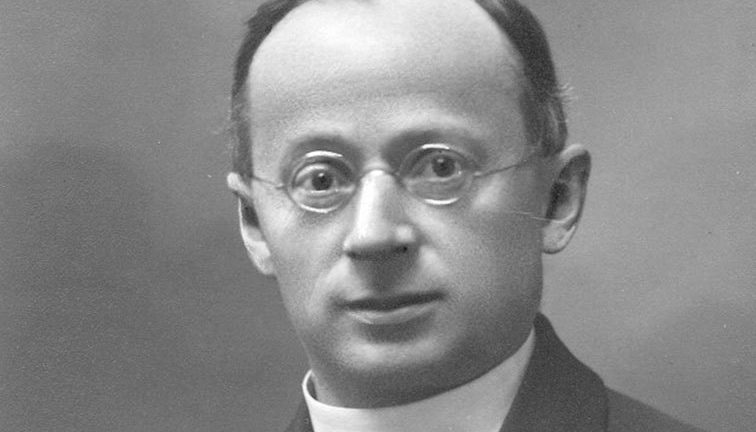
 Holy priests: Saint John Henry Newman
Holy priests: Saint John Henry Newman